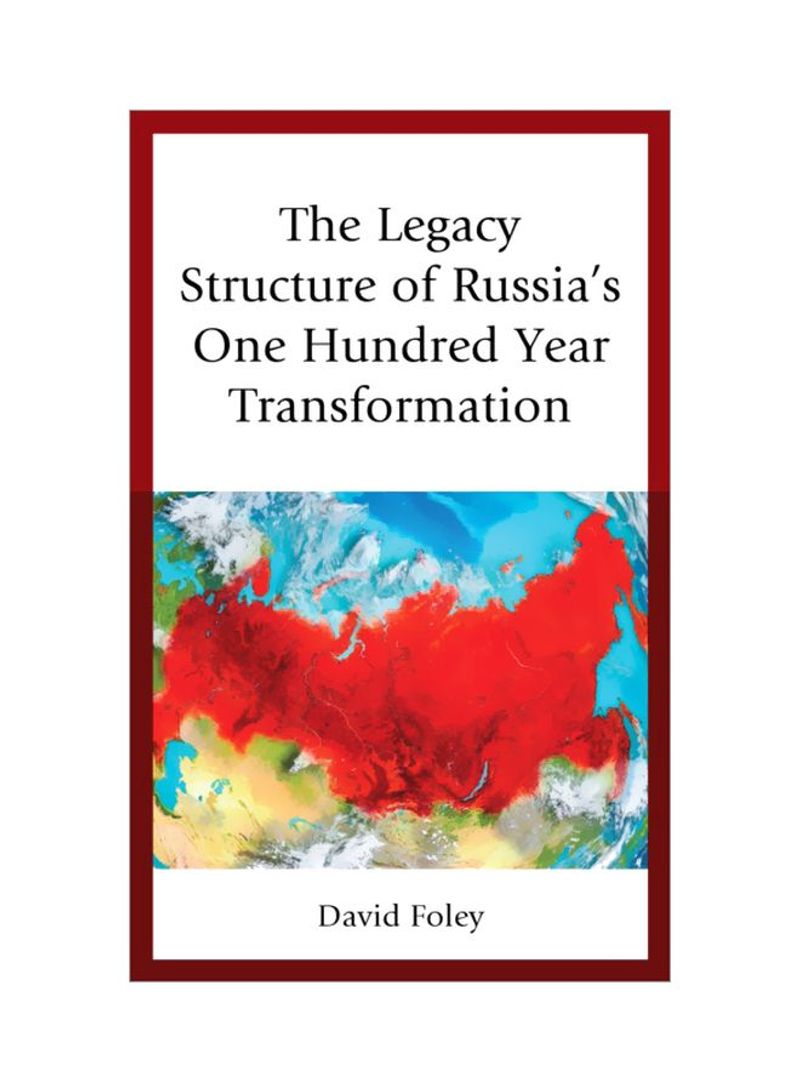The Legacy Structure Of Russia's One Hundred Year Transformation Hardcover
Recommend
Sort by
Rating
Date
Specifications
Grade
New
Author 1
David Foley
Book Description
Research and analysis of the post-Soviet Russian experience of political, economic and social change have generally focused attention on the complications and influences of the Soviet legacy on the transition process with most early main stream studies emphasizing the difficulties of the adoption of the institutions of democracy and a free market economy to the centralized command and control legacy structures carried over from that adjacent system to the more recent analyses that have attempted to explain why the Putinist hybrid authoritarian democracy emerged to take control of the Russian state. The complex nature of the Russian experience of political, social and economic change had yet to be explained as a long-term legacy analysis until now with the linkages presented in this study of the legacies and structures that have defied attempts at reform by the Bolsheviks, the Soviets and the modern Republicans. The political geography of Russia represents a districting system that defines the people and places and represents an influential legacy structure that has had a long reach from the Russia of Imperialism to the Russia of Putinism and the twenty first century. A clearer understanding of the influences the Imperial legacy brings to the Russian transformation enables the student of post-Soviet Russian transition an opportunity to contextualize the strong linkages of historical governance structures with the one hundred years of Bolshevik and Soviet system capture and the struggles of transformation faced by the government and people of Russia today.
ISBN-13
9781498571784
Language
English
Publisher
Lexington Books
Publication Date
15 Dec 2018
Number of Pages
322
About the Author
David Foley is associate professor of political science at Salem College
Editorial Review
An erudite and original analysis of Russia's century-long transformation, with a focus on centre-periphery relations but informed by a profound understanding of the legacies of past attempts at change. An essential contribution to the study of contemporary Russia. -- Richard Sakwa, University of Kent Foley effectively examines Russia's current center-regional relations under Putin in light of its imperial and Soviet heritages. He argues that current social segmentations, power asymmetries and vertical power relations are reminiscent of the pre-1989 Soviet era. The Legacy Structure of Russia's One Hundred Year Transformation gains value by utilizing historical, qualitative and quantitative approaches. Foley demonstrates that only the center holds the Russian federal republic together. Although its populace identifies with a national concept of 'Russia,' they identify far more with their local and immediate surrounding communities. His book is well worth the read! -- Claude Welch, SUNY Distinguished Service Professor, University of Buffalo, The State University of New Yor



